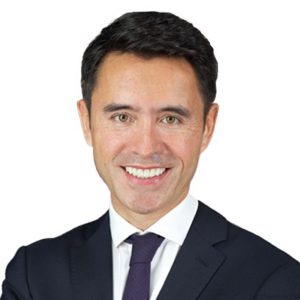GULF TIME
Giga projects have increasingly become the defining hallmark of leading countries in the Middle East, positioning them as key players on the global stage for innovation, sustainability, and technological advancement. These large-scale initiatives, particularly in Saudi Arabia and the UAE, demand a new approach to project management, one that transcends traditional limitations and embraces emerging trends. The success of these developments requires more than just talent or capital, as the industry
needs project leaders who can drive change, navigate complexity, and embrace both disruptions and opportunities in a rapidly changing global landscape.
Technological advancements and the growing need for sustainability, especially as climate change emergencies escalate, are fundamentally reshaping project investment and decision-making. As artificial intelligence (AI) transforms sectors globally, there is a clear trend toward stronger integration of AI across all phases of project management, from planning and execution to monitoring and risk mitigation. Upskilling and building AI capabilities will be critical to prepare the industry for the future,
and to enhance efficiency, automate routine tasks, proactively identify risks, and empower data-driven decision-making.
However, technology alone isn’t the silver bullet for bridging the gap between strategy and execution.
We need to define what success truly looks like. Delivering on time and within budget is not enough.
The real challenge lies in shifting the focus to delivering superior business outcomes.
As Pierre Le Manh, President and CEO of the Project Management Institute (PMI), eloquently stated at the 10th edition of the Dubai International Project Management Forum (DIPMF) earlier this year: “A successful project brings value that was worth the cost and expense.” In other words, while we must respect the triple constraints of time/schedule, budget, and scope, we must go beyond those limitations and actively manage the perception of the value being created and even the perception of the effort and expense involved.
This demands a significant shift in how we approach the role of project professionals and highlights the importance of equipping them with the tools and knowledge to both manage and navigate disruptions of any magnitude to ensure the delivery of tangible, measurable value. The future of project management in the Middle East and globally hinges on our ability to adapt, innovate, and lead with vision.
While technical skills are critical, an emerging trend is to place greater emphasis on leadership and soft skills. Project managers wear many hats; they are facilitators, communicators, strategists, and above all, leaders. The key is shifting from a traditional management mindset to one of ‘situational leadership’. This means mastering the art of adapting one’s leadership style to fit the specific context and maximize impact.
Experts at DIPMF also highlighted the significance of empathy and emotional intelligence in navigating the complexities of modern project management. These core power skills enable leaders to manage conflicts, build strong relationships, cultivate a culture of trust, and empower teams to innovate and adapt, and ultimately drive successful project outcomes.
It is crucial to realize that leadership isn’t confined to the C-suite; everyone in the organization has the potential to be a leader. By developing and honing core technical, leadership, and business strategy skills, each employee can work smarter and navigate their ongoing professional development. In this respect, the PMI Talent Triangle® provides a valuable framework for developing competencies in Ways of Working, Power Skills, and Business Acumen, aligning individual growth with long-term strategic
objectives that contribute directly to an organization’s overall success.
The ability to constantly assess and reevaluate while considering factors such as resource efficiency, waste reduction, and the long-term societal and environmental impact of projects is paramount for the success of each project. Sustainability and social responsibility have become central to how projects are managed today, especially among the younger generations of project professionals.
To unlock the next level of project success, continuous learning is imperative. The Middle East is witnessing a surge in demand for bespoke project management approaches tailored for executing truly unique projects. What’s exciting is the industry’s embrace of cross-sector collaboration. By sharing best practices across diverse disciplines, identifying commonalities, and reimplementing them in new contexts, we are accelerating innovation and building a more resilient future.
In the industry, we also recognize the importance of prioritizing customer needs throughout the entire project lifecycle. This means actively engaging customers, establishing robust feedback mechanisms, and integrating their insights into every project decision. By adopting this ‘customer-first’ mindset, project managers are not only improving outcomes; they are also driving innovation, strengthening customer relationships, and ultimately achieving the desired business objectives.
As project management becomes increasingly complex, relying on AI tools will be essential to staying competitive. Mastering AI is crucial, but even more vital is cultivating critical thinking skills. In an era of rapid technological change and disruptive global mega-trends, MENA’s project professionals must remain agile and adopt diverse ways of working to deliver exceptional value.
Hanny Alshazly is Managing Director, Middle East and North Africa Region, Project Management Institute (PMI)
The future of project management in the MENA region is being actively shaped by forward-thinking professionals who are embracing these trends and driving innovation. By prioritizing continuous learning, upskilling, and collaboration, the region can solidify its position as a global leader in project management practices.
 The Gulf Time Newspaper One of the finest business newspapers in the UAE brought to you by our professional writers and editors.
The Gulf Time Newspaper One of the finest business newspapers in the UAE brought to you by our professional writers and editors.


